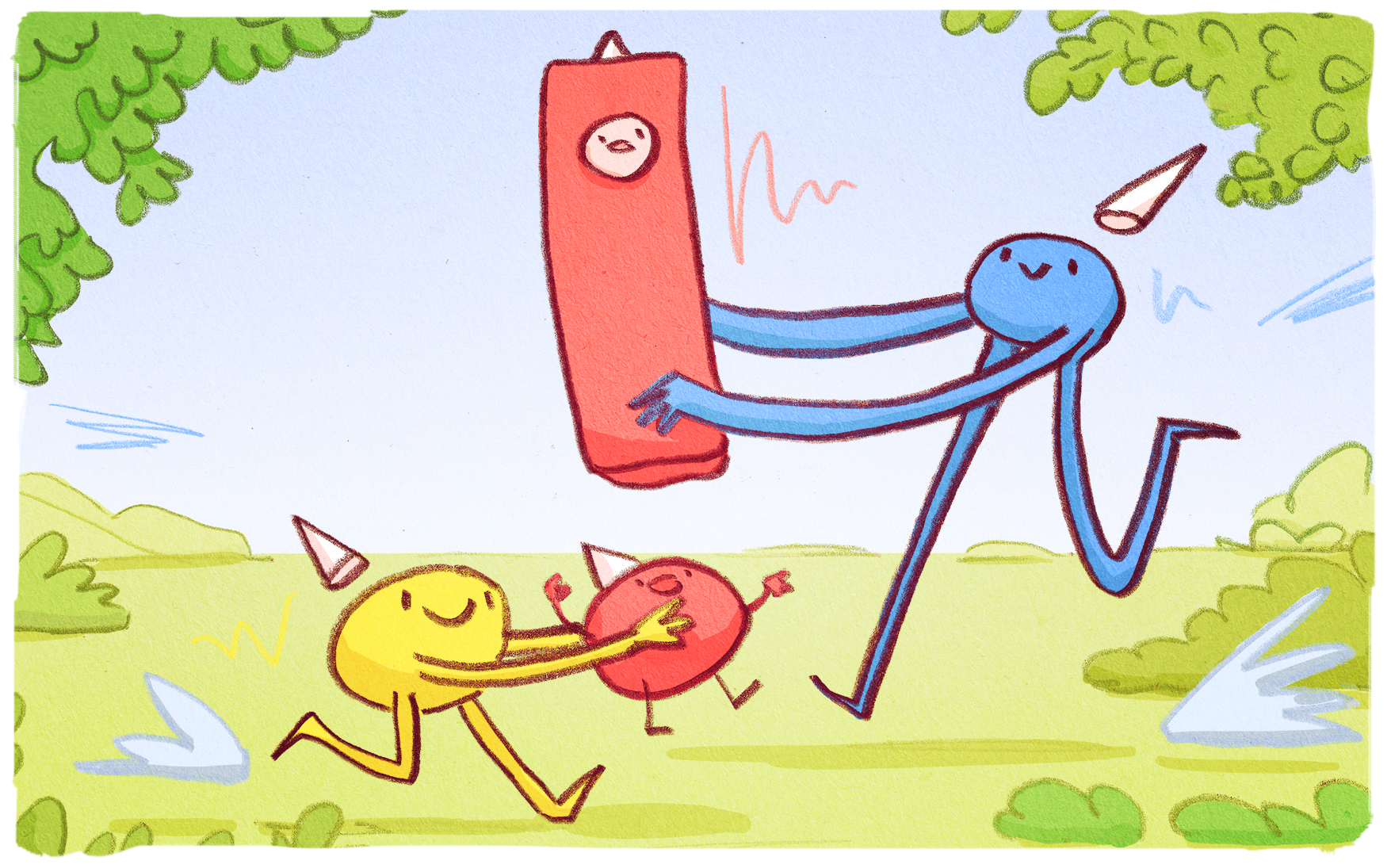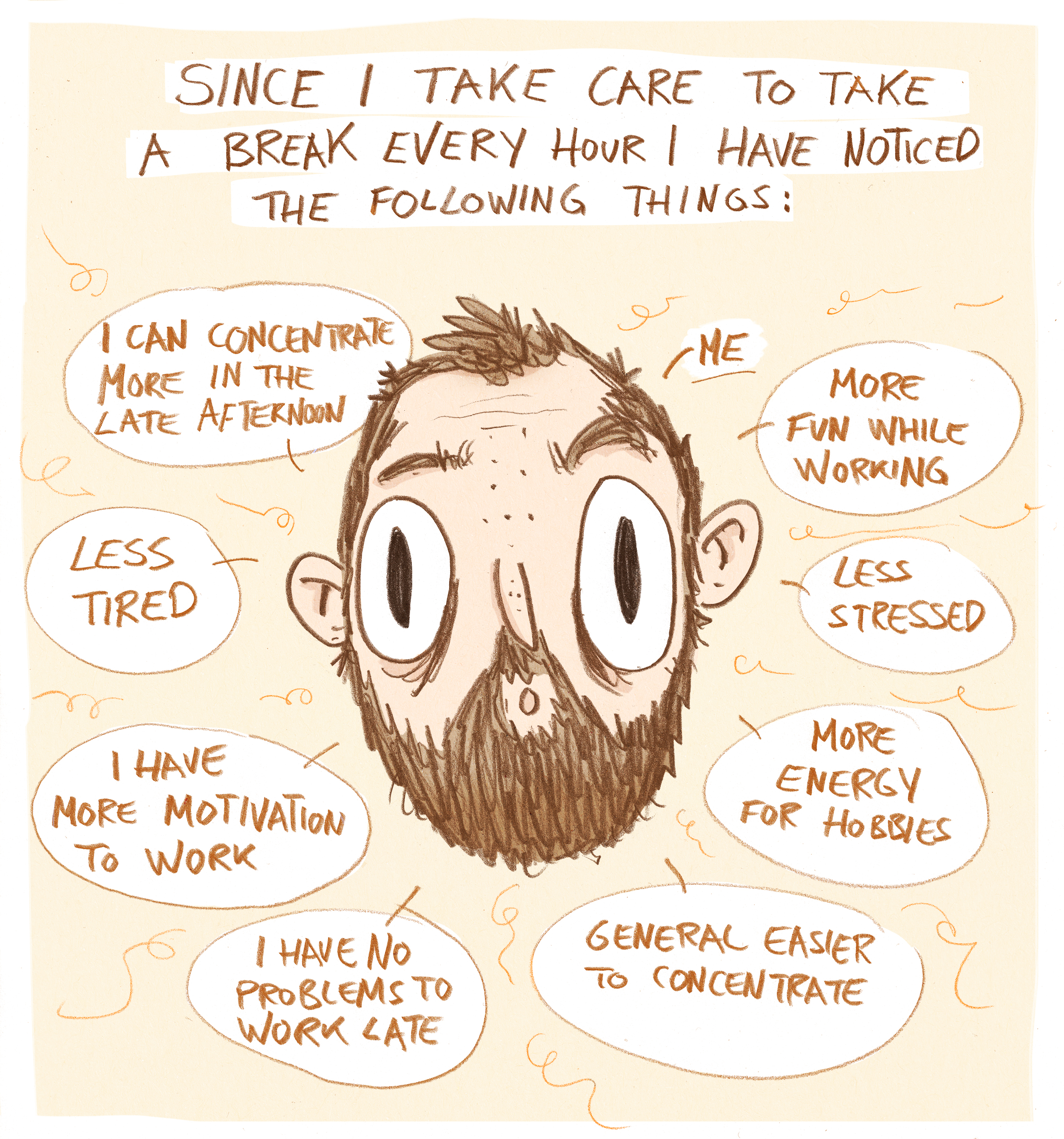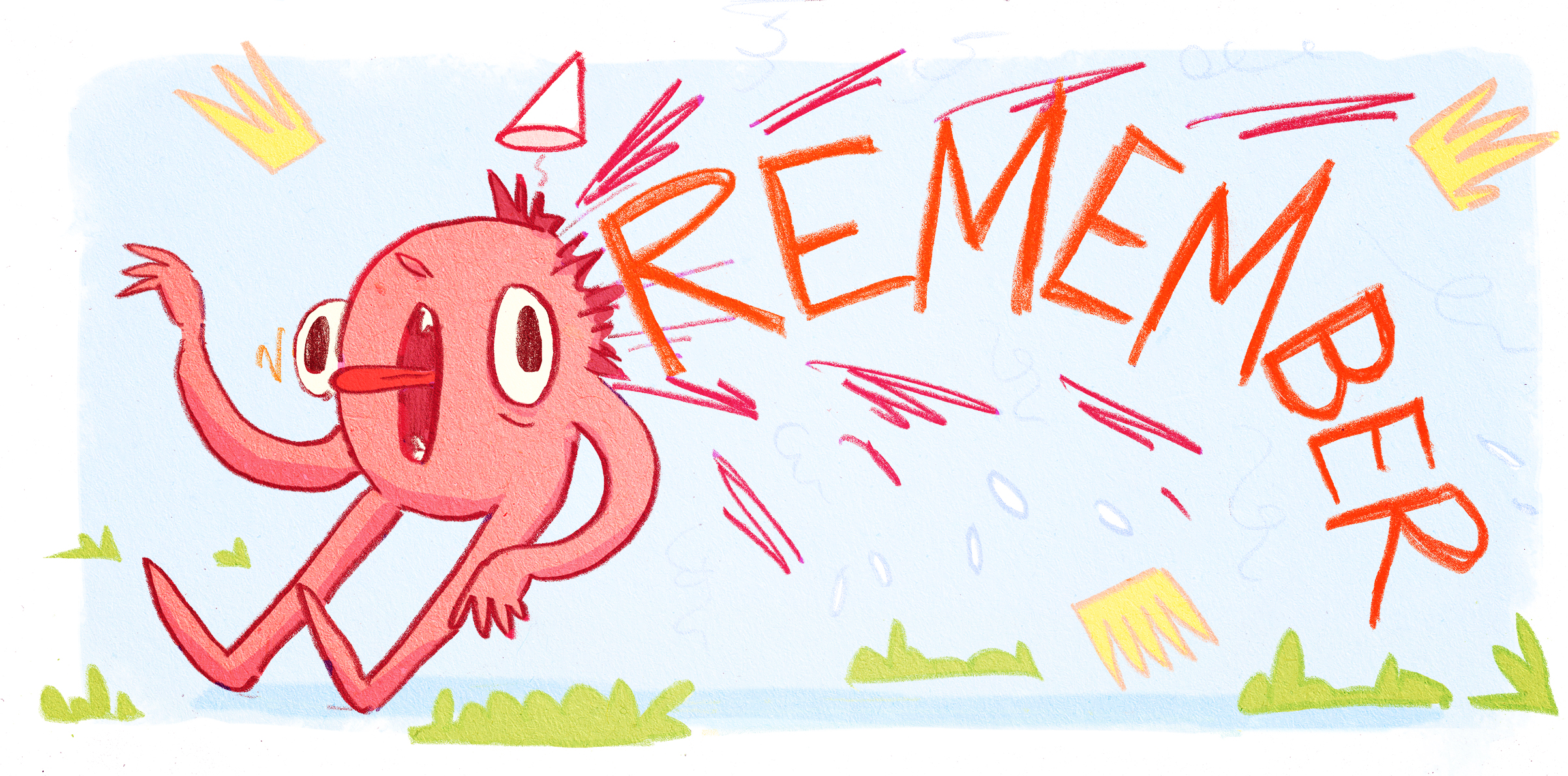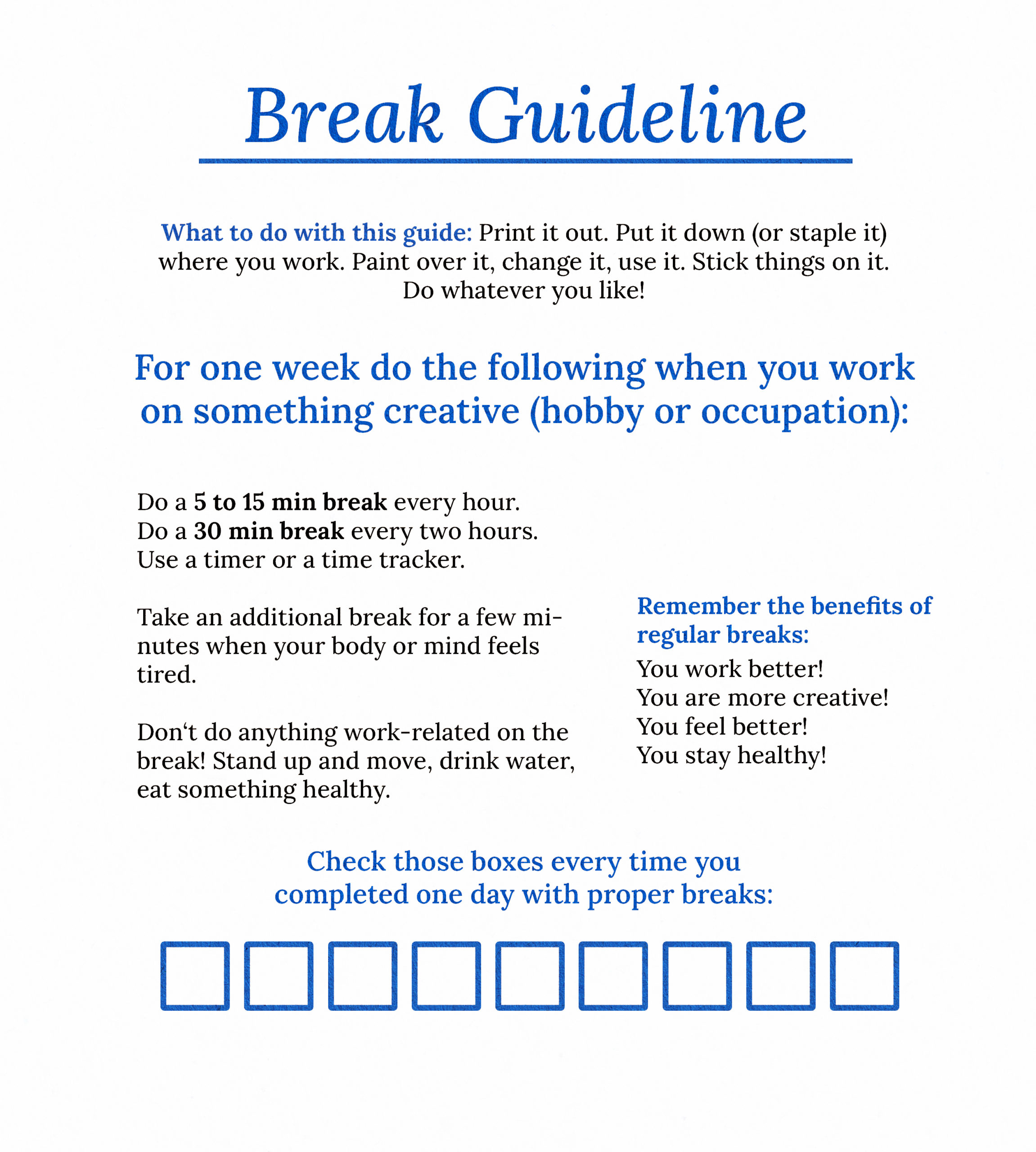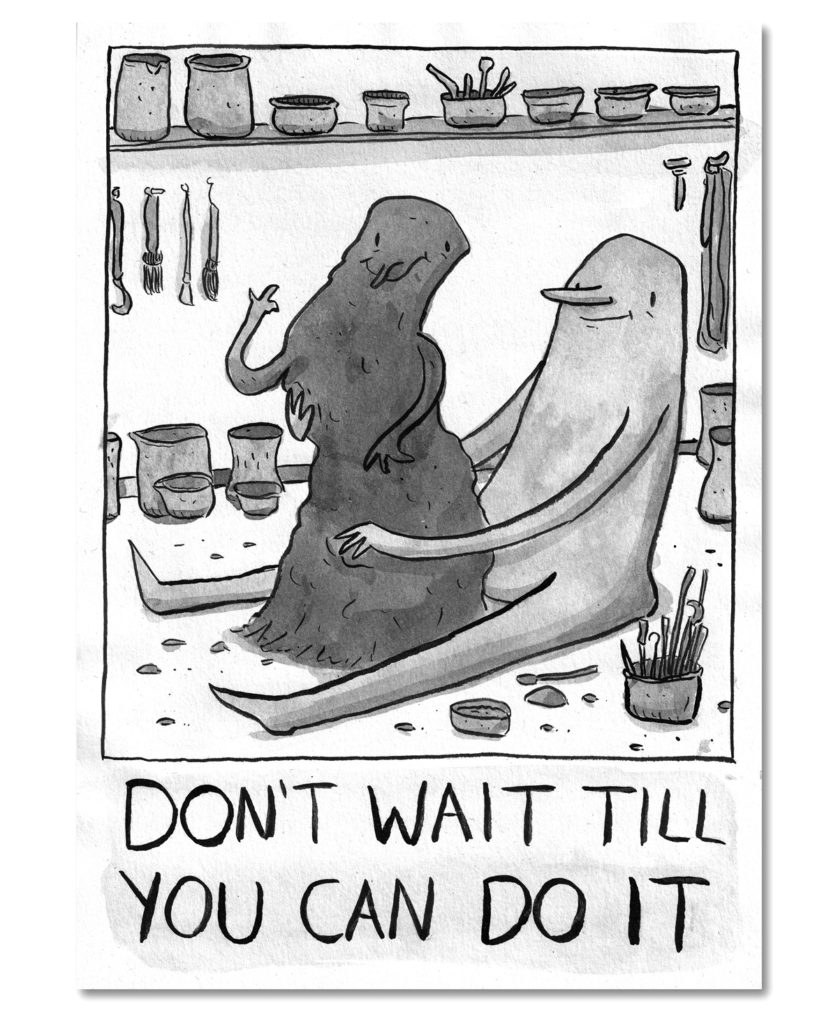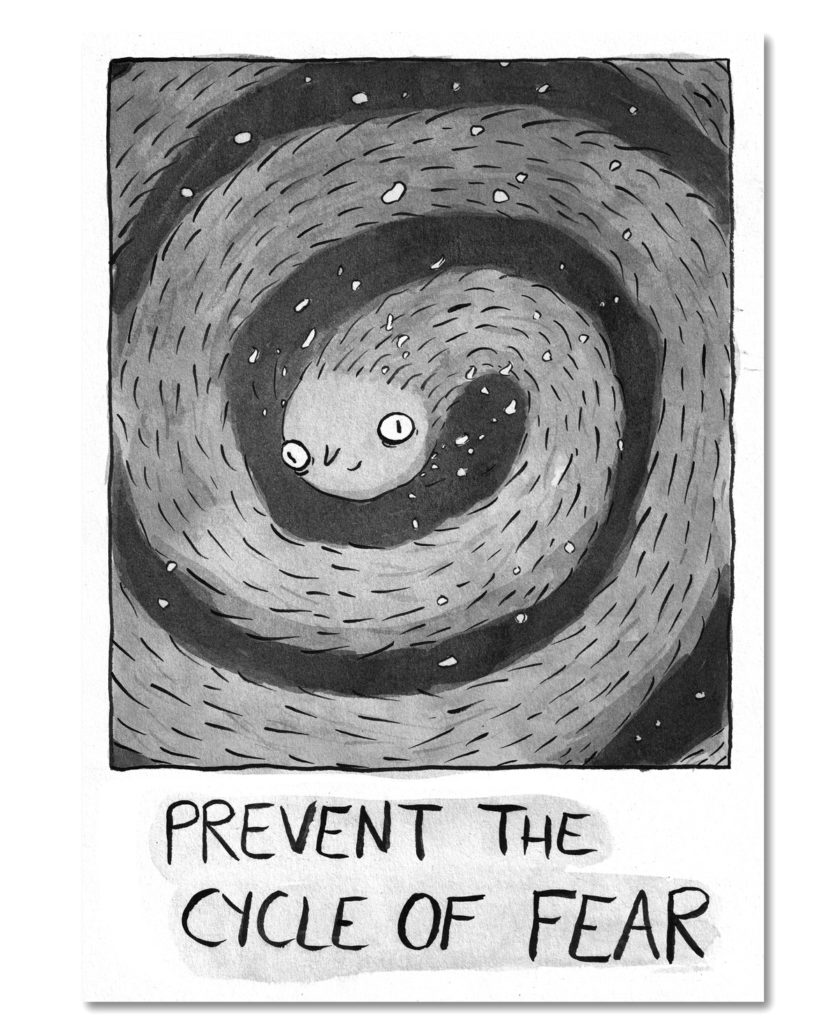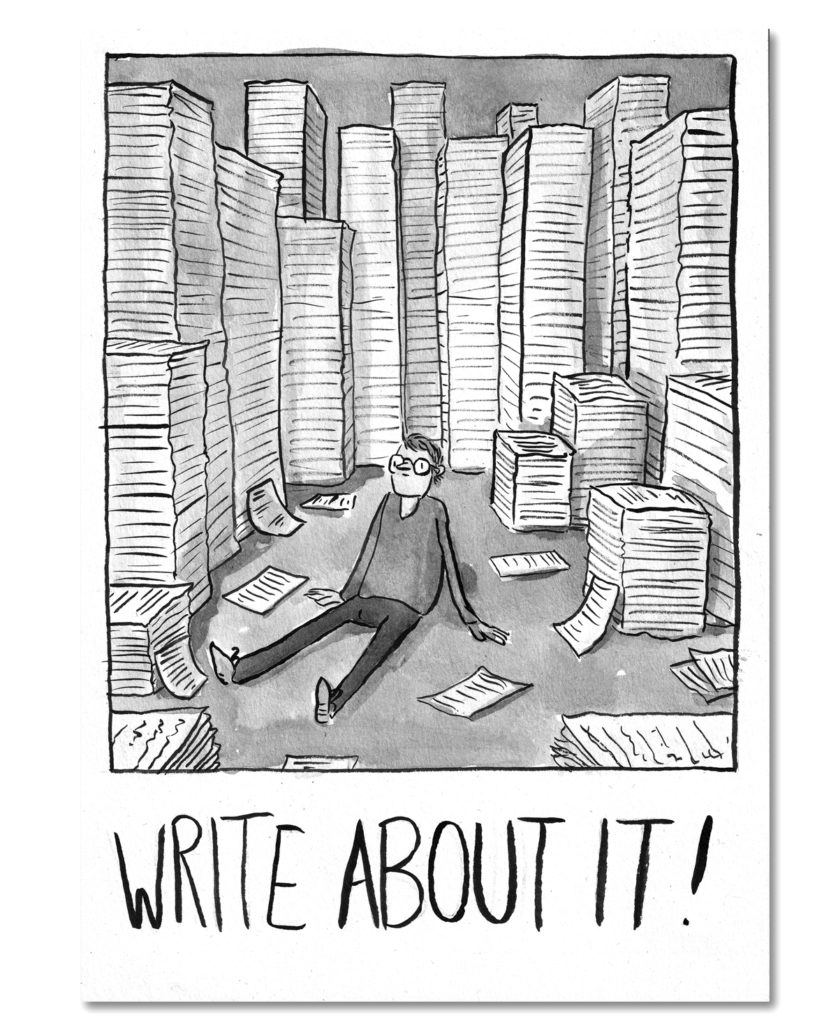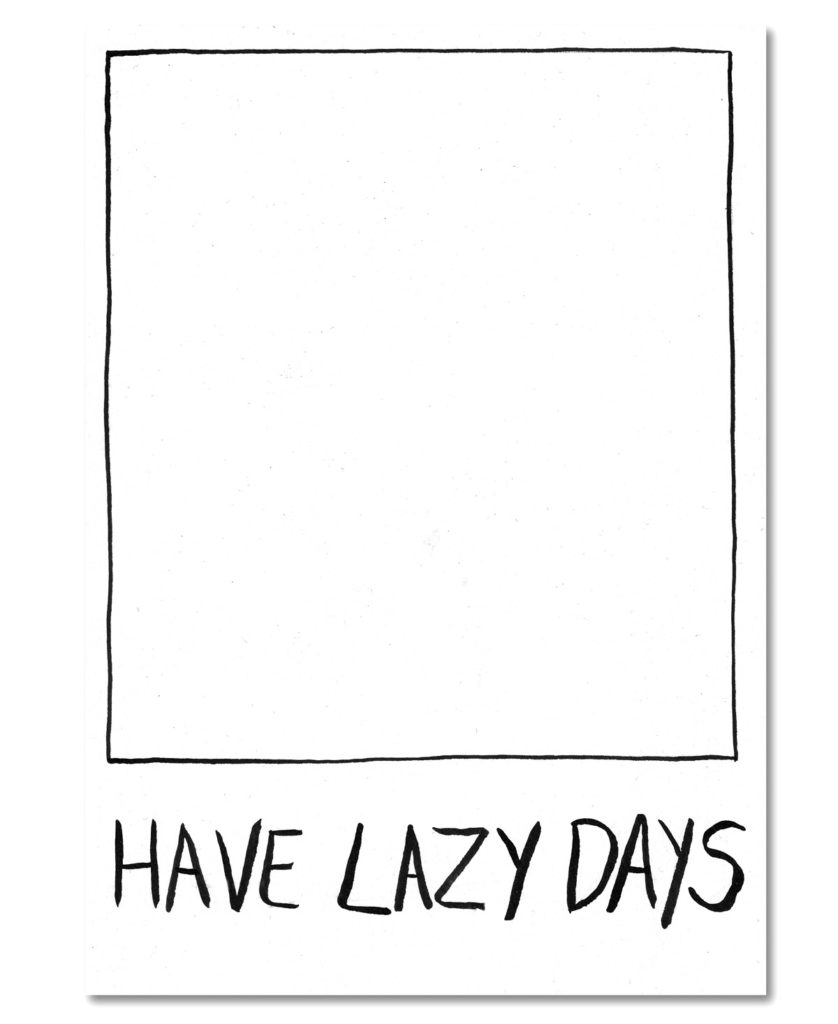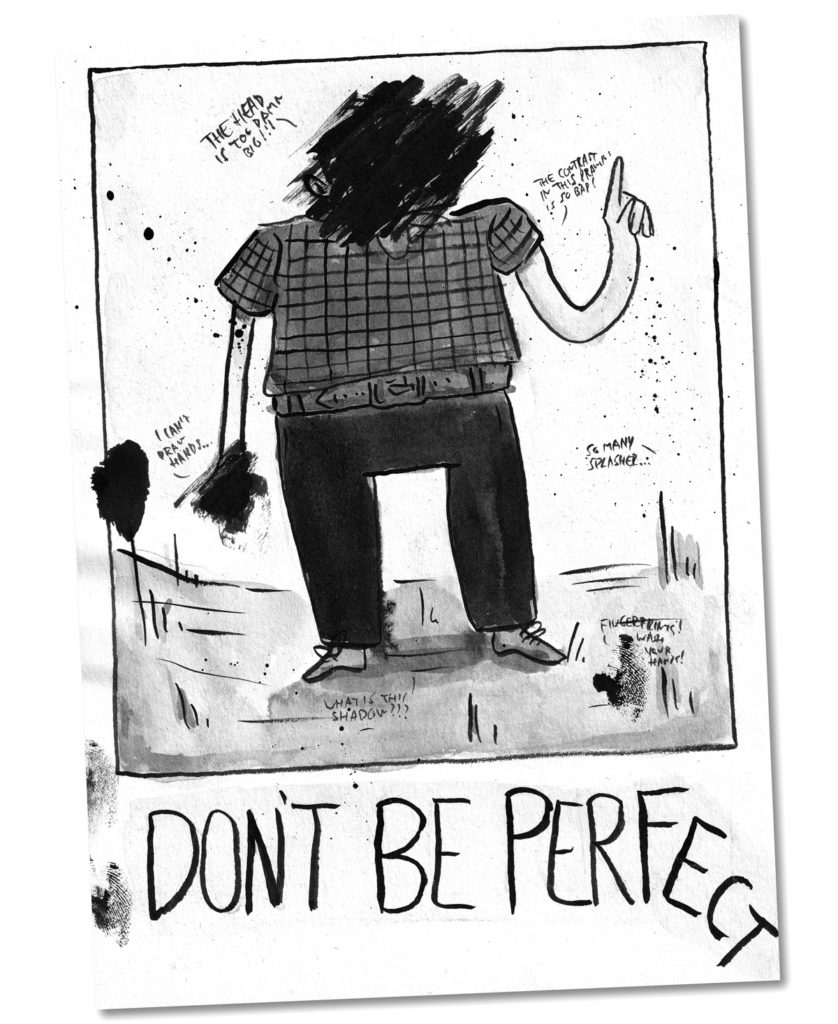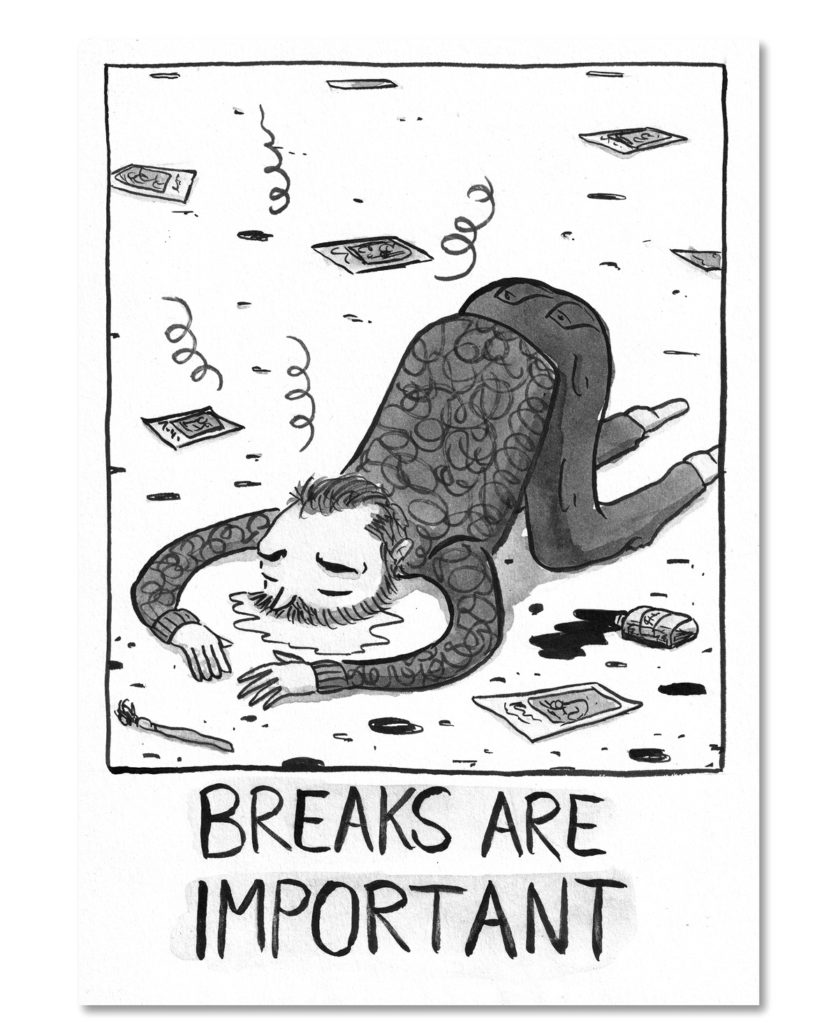Do you know what self-efficacy is and how to develop it? I made a visual guide in case you need some information about this topic. You will conquer your fears and get productive if you can develop your self-efficacy. Take this guide and start with it!
Click to enlarge the guide! You can print it out and/or share it.
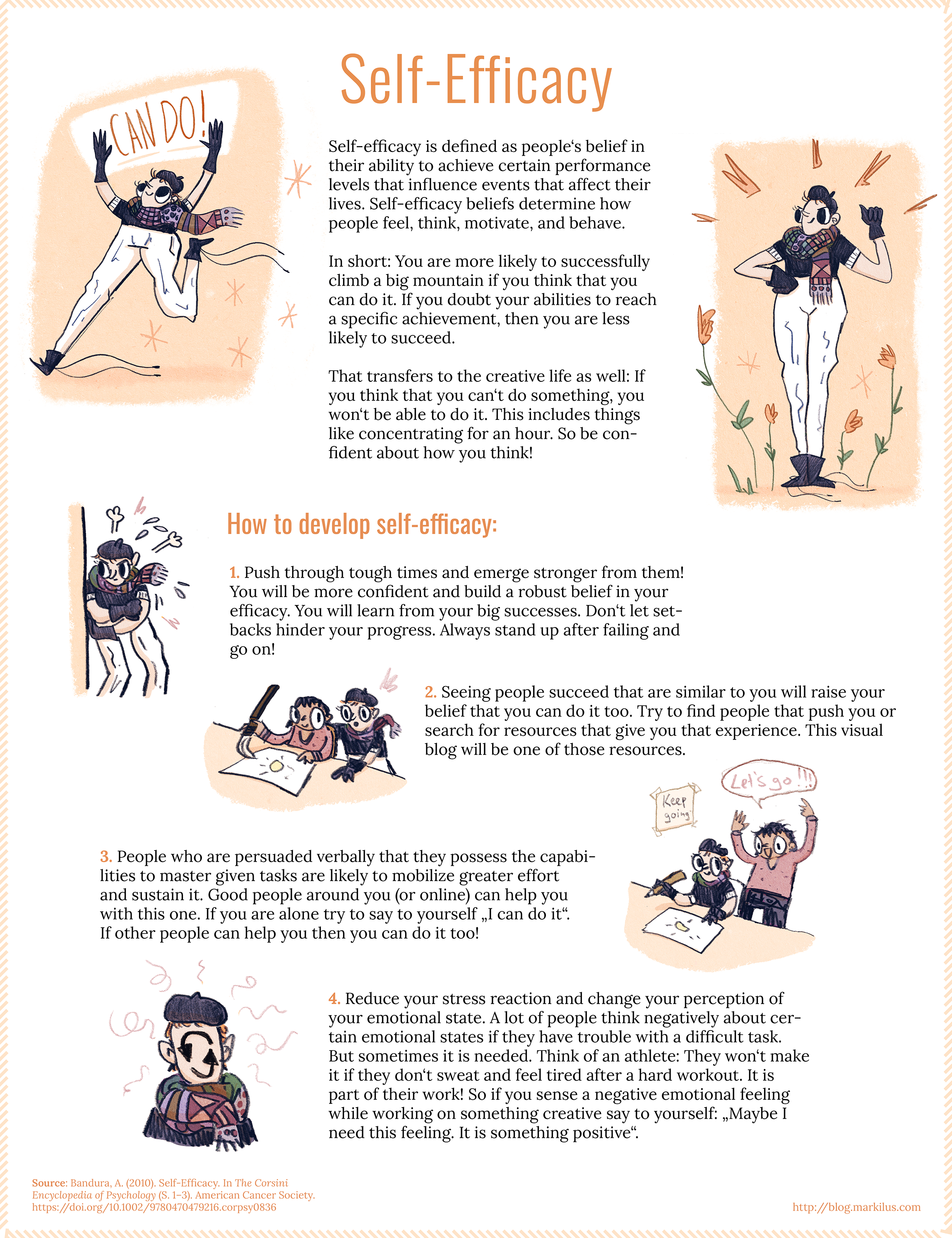
Self-efficacy is defined as people’s belief in their ability to achieve certain levels of performance that influence events that affect their lives. Self-efficacy beliefs determine how people feel, think, motivate, and behave.
In short, you are more likely to successfully climb a big mountain if you believe you can do it. If you doubt your ability to accomplish something, you are less likely to succeed.
This also applies to the creative life: If you think you can’t do something, you won’t be able to do it. This includes things like concentrating for an hour. So be confident in how you think!
How to develop self-efficacy
- Push through tough times and come out stronger! You will become more confident and build a solid belief in your efficacy. You will learn from your great successes. Don’t let setbacks derail your progress. Always get up after failure and keep going!
- Seeing people who are similar to you succeed will increase your belief that you can do it too. Try to find people to push you or find resources that give you that experience. This visual blog will be one of those resources.
- People who are verbally convinced that they have the ability to accomplish tasks are more likely to mobilize and sustain greater effort. Good people around you (or online) can help you with this. If you are alone, try telling yourself “I can do this”. If other people can help you, you can do it!
- Reduce your stress response and change your perception of your emotional state. Many people think negatively about certain emotional states when they are struggling with a difficult task. But sometimes it is necessary. Think of an athlete: They can’t do it if they don’t sweat and feel tired after a hard workout. It is part of the job! So when you feel a negative emotional feeling while working on something creative, say to yourself: “Maybe I need that feeling. It is something positive.”
Source: Bandura, A. (2010). Self-Efficacy. In The Corsini Encyclopedia of Psychology (pp. 1-3). American Cancer Society. https://doi.org/10.1002/9780470479216.corpsy0836
